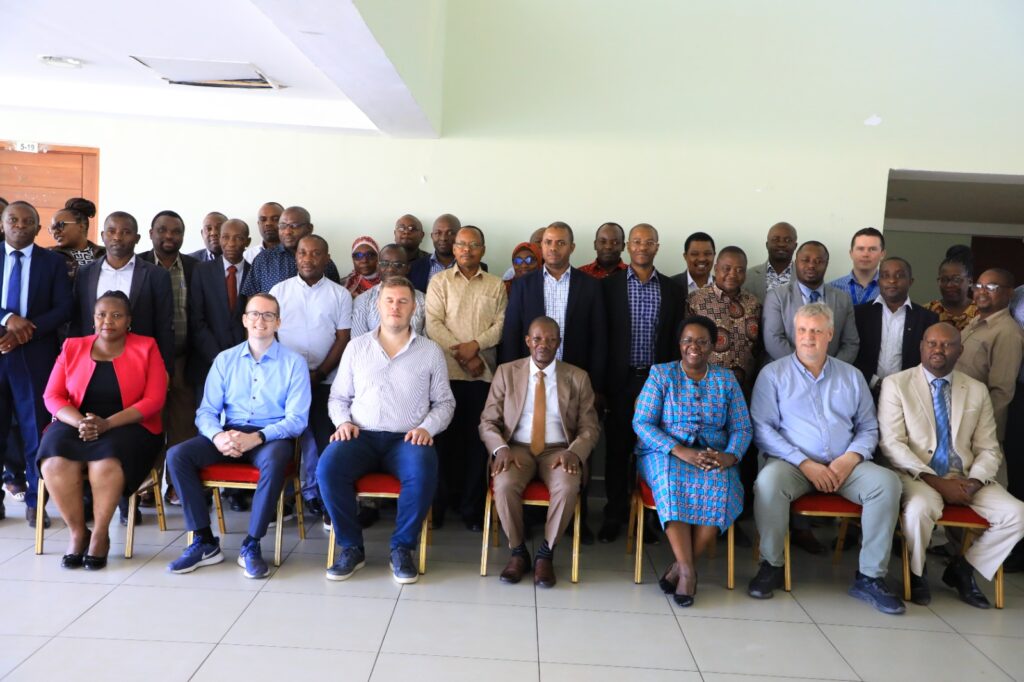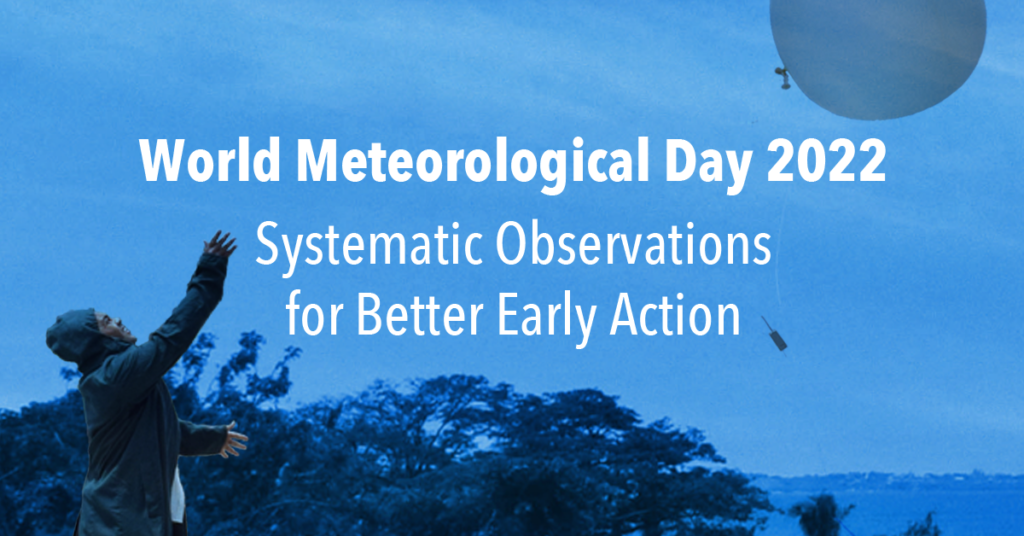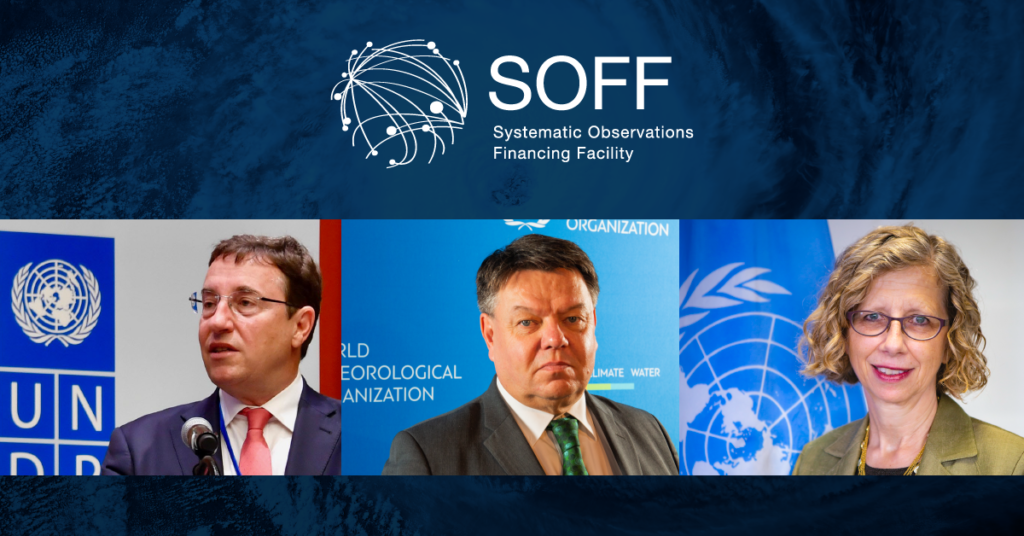SOFF to enhance data availability and exchange for improvement of weather and climate forecasts in Tanzania

Tanzania Meteorological Authority (TMA) in collaboration with Danish Meteorological Institute (DMI) as peer Advisor and the United Nation Development Programme (UNDP) being an implementing Entity has started implementation of the Systematic Observation Financing Facility (SOFF) readiness Phase by conducting a workshop on preparation of Global Base Observation Network (GBON) National Gap Analysis for Tanzania. In […]
4th SOFF Steering Committee Summary

The SOFF Steering Committee approves funding for the first 26 countries and adopts accelerated implementation.
World Meteorological Day 2022

Systematic Observations for Better Early Action On March 23 we mark the 72th recurrence of World Met Day. The climate has dramatically changed over the last 70 years as shown by the latest IPCC report. With its dire warning about the impacts of climate change on people and the planet, the report was called “a […]
Innovative finance for global weather and climate data

The Nordic Development Fund (NDF) has committed 10 million Euros to the Systematic Observations Financing Facility (SOFF), a groundbreaking financing mechanism designed to ramp up the global understanding of climate change by significantly increasing the availability of essential weather and climate data. The NDF Managing Director, Ms. Karin Isaksson, welcomed the creation of SOFF and […]
UN Unveils New Finance Mechanism to Boost Climate Action

3 November 2021: On Finance Day at COP26, the World Meteorological Organization (WMO), the UN Development Programme (UNDP) and the UN Environment Programme (UNEP) announced the creation of the Systematic Observations Finance Facility (SOFF).
This new finance mechanism will set the foundation to boost climate action globally and will contribute to achieving one of the main goals of COP26 – to urgently scale-up climate finance to support developing countries’ adaptation and mitigation efforts.
COP26: how plugging data gaps will transform our response to climate change

Just a week before the COP26 climate summit in Glasgow, three of the United Nations’ leading agencies on climate and development released alarming reports.
The World Meteorological Organization has highlighted how greenhouse gases in the atmosphere reached a record high in 2020. It found that concentrations of carbon dioxide and other heat-trapping gases in the atmosphere rose at a faster rate in 2020 than over the previous decade.
Three UN Agencies Announce New Financing Mechanism to Boost the International Response to Climate Change

Geneva, 28 October 2021: The World Meteorological Organization (WMO), the UN Development Programme (UNDP) and the UN Environment Programme (UNEP) are to announce at COP26 a new United Nations Coalition Fund to significantly improve the collection of essential weather and climate data and boost the international response to climate change.
Support grows for Systematic Observations Financing Facility

The World Meteorological Organization (WMO), the United Nations Development Program (UNDP) and by the United Nations Environment Program (UNEP) convened the third meeting of the forum of potential funders for the Systematic Observations Financing Facility (SOFF). Some 50 delegations representing potential bilateral, multilateral and philanthropic funders as well as observer organizations including the Least Developed Countries (LDCs) Group and the Alliance of Small Island States (AOSIS) and the members of the Alliance for Hydromet Development joined the meeting.
Strengthening weather and climate observations: A foundational global public good

The new edition of the ‘Financing the United Nations Development System’ report features the Systematic Observations Financing Facility (SOFF) as an innovative financing mechanism designed to provide a foundational global public good: basic weather and climate observations.
Hydromet Investments save lives and make economic sense

First Hydromet Gap Report calls for scaled-up action
Geneva, 8 July 2021 (WMO) – An estimated 23,000 lives per year could be saved potential annual benefits of at least US$ 162 billion could be realized by improving weather forecasts, early warning systems, and climate information – known as hydromet, according to a new report.
The first Hydromet Gap Report, launched on 8 July, tells us how far we have to go to tap the benefits of effective weather and climate services. It presents the challenges of the complex global and local undertaking required and proposes priority actions to scale up support to developing countries to strengthen their capacity